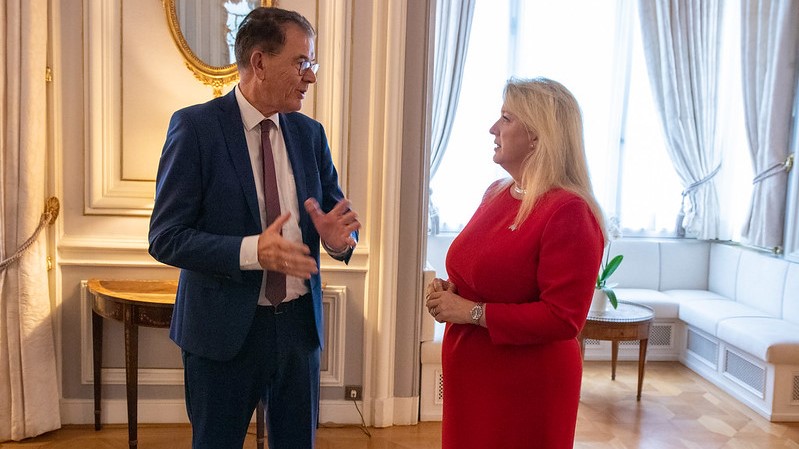
$50bn SDG-targeted investment proposals at SDG Investment Fair
Over 100 SDG-aligned projects with a total investment scope of $ 50 billion have been presented during the ...

The UK has approved a £65 million program for supporting clean energy innovation in developing countries under a commitment by UK Prime Minister Rishi Sunak in this regard during the 27th United Nations Climate Change Conference (COP27) which was held in Egypt’s Sharm el Sheikh in November 2022.
At COP27, Sunak announced £65.5 million of funding for the ‘Accelerate-to-Demonstrate’ (A2D) Facility under the framework of the Clean Energy Innovation Facility (CEIF) platform to support the delivery of the UK’s £1 billion Ayrton Fund commitment for clean energy innovation in developing countries. This is part of the UK’s £11.6bn international climate finance commitment. Further details about the new A2D Facility will be available later in the year, once it is established.on allocating £65.5 million of funding for the ‘Accelerate-to-Demonstrate’ (A2D) Facility.
The UK will collaborate with the United Nations Sustainable Development Organization (UNIDO) for implementing the program which aims at accelerating the commercialization of innovative clean energy technologies in low- and middle-income countries (for eligible countries see the DAC List of ODA Recipients), focusing on innovative solutions in critical minerals, clean hydrogen and cross-cutting thematic areas (clean transport, smart energy, energy efficiency, energy storage, industrial decarbonization and sustainable cooling). The program will help countries to mitigate climate change and meet the Sustainable Development Goals.
Gerd Müller, UNIDO Director General, and Lindsay Skoll, the UK’s Ambassador to Austria and UK Permanent Representative to the United Nations in Vienna, met on 12 May to discuss and launch the A2D Facility.
Müller expressed his enthusiasm for the program, remarking that “almost half of the emissions reductions needed to meet global net zero emissions climate targets by 2050 will come from technologies that are not yet commercial. Delivering the scale and pace that the energy transition needs requires accelerated innovation in multiple industrial sectors.”
He said, “Innovation in clean energy technologies needs to be tailored to specific country needs, especially in developing countries where a large share of future climate change mitigation action will take place.”
Once established, the A2D Facility will provide grant funding to support small and medium-sized enterprises, research institutions and other organizations to undertake pilot demonstrations of innovative clean energy technologies and the innovative business models needed to facilitate this, training to develop the expertise and skills of innovators and key stakeholders, and knowledge production and dissemination.
Ambassador Skoll remarked that the UK is delighted to be working with UNIDO on this significant investment. “I am delighted that the UK is partnering with UNIDO to deliver this first-of-a-kind, large-scale and ambitious international climate finance program to accelerate clean energy innovation in developing countries.”
She added, “The A2D Facility is an important part of delivering the UK’s Ayrton Fund commitment and will help to accelerate learning across a range of solutions through pilot demonstrations, building local capabilities and systems, and leveraging wider investments to address key thematic areas that are off-track for meeting climate targets. A2D will particularly focus on critical minerals, clean hydrogen and cross-cutting solutions for energy transitions. The interventions are crucial for delivering carbon emissions reductions, green jobs and accelerating the commercialization of innovative solutions in developing countries.”
Over 100 SDG-aligned projects with a total investment scope of $ 50 billion have been presented during the ...
Global electric car sales are set to hit around 17 million by the end of ...
Ericsson Canada marked the Earth Day by joining the Environment and Climate Change Canada’s (ECCC) Net-Zero ...


اترك تعليقا